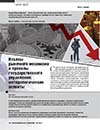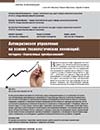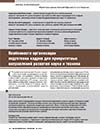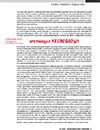Encoding of Economic Performance Indicators as a Key Factor in the Digital Economy
DOI: 10.33917/es-8.166.2019.102-109
Realization of the national interests of the Russian Federation in the sphere of digital economy, as defined in Decree No. 203 of the President of the Russian Federation of May 9, 2017 “On the Strategy for Development of the Information Society in the Russian Federation for 2017–2030”, is possible through digital encoding of economic performance data and using results of their analysis, which, compared to traditional forms of management, should significantly increase the efficiency of various types of production. This article discusses the encoding principles of various indicators of economic activity and the main mechanism of their relatedness for reflecting data in the new created forms: a digital unified plan and a digital analytical balance. The article presents technology of forming a “digital contract” and “digital documents-bases” for creating an innovative mechanism for automatic reflection of accounting entries in the standard accounting registers and digital management balance













